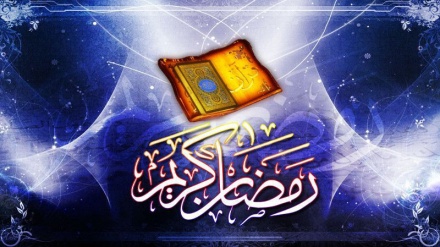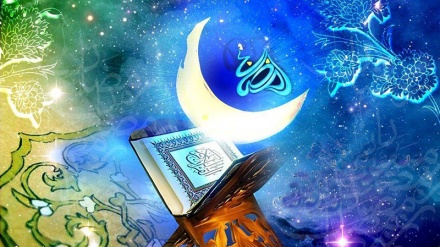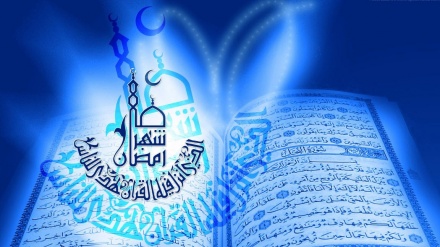Blessed Month of Ramadhan
Welcome to the 19th episode of the series “Blessed Month of Ramadhan”.
We offer heartfelt condolences to you all since today is that fateful 19th of the Fasting Month when in the year 40 AH, corresponding to 661 AD, the Barometer of Belief, the Commander of the Faithful, the Leader of the Pious, the Epitome of Justice, the Symbol of Valour and the Gateway of Wisdom, Imam Ali ibn Abi Taleb (AS), the First Infallible Successor of Prophet Mohammad (Blessings of God upon him and his progeny) was struck a fatal sword blow on his head while engrossed in the Morning Prayer in the Grand Mosque of Kufa, and as a result attained immortal martyrdom three days later.
Imam Ali (AS), who decades earlier had been informed by the Prophet of his martyrdom during the grand nights of Qadr, and was always prepared for this eventuality, realized these days that it was the last Ramadhan of his life. On the eve of the 19th day of the Blessed month of Ramadhan, he recited Surah Yasin of Holy Qur’an. He then looked at the sky and informed his household that night was the night which would free his soul from the burdens of the mortal world. At the break of dawn of the 19th of Blessed Ramadhan, he moved toward the mosque for leading the ritual morning prayer. He entered the Grand Mosque of Kufa, and recited the Adhan or the Prayer Call. Then, as he prayed and performed the genuflection and prostration, the renegade Abdur-Rahman Ibn Muljam, who had entered the mosque with a poisoned sword concealed in his robe, struck the Imam. Though blood gushed from his head, Imam Ali (AS), the only person ever to be born in God Almighty’s Symbolic House, the Holy Ka’ba in Mecca, expressed that immortal phrase which continues to inspire the faithful. He said “Fozto wa Rabb-il-Ka’ba”, which means By the Lord of the Ka’ba I have succeeded. Beckoning his son and successor, Imam Hasan Mojtaba (AS) to complete the ritual prayer, Imam Ali (AS) was thrilled on achieving this grand status, while in the servitude of the Lord Most High.
Imam Ali (AS) whose right of political leadership of the Ummah was usurped immediately after the passing away of his cousin the Prophet, patiently endured the havoc caused by the caliphate for twenty-five years. In 36 AH when the caliphate came begging at his door, he reluctantly took up the reins of political power on condition that he will govern only in accordance with God’s Revealed Word the holy Qur’an and the Sunnah and Seerah, that is, the practice and precepts set by the Prophet, and will not respect the un-Islamic innovations that had crept into the body-politic of Islam over the past quarter century. As the representative of God on Earth, he launched the model government of social justice, the like of which the world has yet to see. His fairness and his abolition of the discriminations between Arabs and non-Arabs earned him the enmity of vested interests that has prospered during the misrule of the past 25 years. The first signs of sedition was by a group of companions of the Prophet who broke their allegiance to him, and taking a wife of the Prophet along with them, marched to Basra in Iraq to start an open armed rebellion against his rule. Imam Ali (AS), sensing the gravity of the situation, shifted the capital from Medina to Kufa in Iraq, and when his pleas to the rebels to return to the fold of Islam, bore no fruits, he assembled an army to confront them. The result was the Battle of Jamal in which he emerged triumphant and magnanimously treated his defeated foes.
The next sedition faced by Imam Ali (AS) and a more dangerous one was the War of Siffin started by Mu’awiyya ibn Abu Sufyan, the rebellious governor of the large province of Shaam – made up of present day Syria, Lebanon, Jordan, and Palestine. The protracted conflict was on the verge of victory for the Imam when Mu’awiyya on the suggestion of Amr ibn Aas, raised what seemed to be copies of the Holy Qur’an on spear-points and pleaded for truce in order to deceive the unsuspecting Muslims. Imam Ali (AS) saw the ruse and urged his commanders to continue the battle until victory. The Imam’s general Malek Ashtar had pierced through the Syrian defences and was on the verge of storming the camp of Mu’awiyyah, when a group of deceived elements in the army of the Imam, drew their swords and forced the Imam to stop the battle and enter into truce with the Syrians. Imam Ali (AS) had no choice but to call off the fight. This seditious group later opposed the Imam for stopping the fight and agreeing to the arbitration, which they themselves had forced upon him. This group became known as the Khwarej or renegades from Islam. They now assembled a force of twelve thousand soldiers and made plans to attack Kufa. Imam Ali (AS), in order to nullify their plot marched with his army to a place called Nahrawan, where he appealed to the rebels to come to their senses, in view of his position and the Prophet’s hadith about him. Some eight thousand rebels repented and came over to the Imam’s side, leaving four thousand hardcore renegades, like today’s Takfiri terrorists, to continue the battle. The Imam routed the whole force, and of the few survivors that fled Nahrawan, one was Abdur-Rahman ibn Muljam al-Moradi, who harboured vengeance in his heart, and conspired to murder the Prophet’s righteous heir. Thus, it was on the fateful night of Ramadhan 19, the Godless Ibn Muljam finding Imam Ali (AS) engrossed in the ritual prayer, struck the fatal sword blow that plunged the Ummah into grief and ended the four-and-a-half year rule of the model government of social justice.
Ayah 54 of Surat an-Noor states:
“Say, ‘Obey Allah, and obey the Prophet.’ But if you turn your backs, you should know that he is only responsible for his burden, and you are responsible for your burden, and if you obey him, you shall be guided, and the Apostle’s duty is only to communicate in clear terms.”
Given the principle of monotheism, compliance with the instruction of someone other than God is only allowed when that person is permitted by God to instruct others. In this ayah, God commands mankind to obey the Prophet of God, after having obeyed Him. God also instructs the Prophet to tell people if they disobey the Prophet of God, the Prophet would not incur any loss, because his duty is only to communicate in clear terms the commandments of God, and they are duty-bound to obey the Prophet, which means the real losers will be those who disobey the Prophet and pay scant attention to the commandments of God. As for those who obey the Prophet, they shall be guided, because whatever he brings is from God, and in fact obeying the Prophet of God is tantamount to obeying God Almighty. Thus the Prophet on receiving revelations from God defines the topics of Shari’ah, such as observation of the daily ritual prayers, fasting in the month of Ramadhan, the Hajj pilgrimage, Jihad or struggle in the way of God, payment of Zakat to the poor, marriage, laws of transaction, and other acts of worship and social matters.
The Human body naturally needs food and water as of one’s birth to one’s death. If a plant is not watered, it would be wilted, and if mankind would have no access to water, he would pass away. Seventy percent of our planet earth is covered with water. Also, seventy percent of human body is made of water. Naturally, we come to realize that the best conditions for the existence of a creature, whose body is mainly made of water, are attained when at least 70% of what he eats is made of water. Health professionals recommend consumption of honey, succulent fruits, and vegetables.
These succulent foods naturally exist on the planet. Other than succulent foods, other foodstuff have been compacted and/or concentrated via cooking, and/or refining, and/or application of industrial technologies. Honey is a natural food, twenty percent of which is water, with another 3% made of refined sugar. Honey, according to Holy Qur’an is a food in which there is a cure for the people.
In ayahs 68 and 69 of Surat an-Nahl in Holy Qur’an, God states:
“And your Lord inspired the bee saying: ‘Make your home in the mountains, and on trees and the trellises that they erect. They eat from every kind of fruit and follow meekly the ways of your Lord.’ There issues from its belly a juice of diverse hues in which there is a cure for the people.”
Thus, honey is the best drink for Iftar and Sahari, especially given that in the second half of the blessed month of Ramadhan, the bodies of those who fast, becomes weaker and is in need of further care and nutrition. Negligence of this topic of importance leaves its impacts at the end of the month and even in the long run. Meanwhile, consumption of honey is highly beneficial for mankind. Honey is a healthy, natural, and energetic food which is easy to digest. It consists of carbohydrates, proteins, fat, enzymes, and vitamins. A spoon of honey contains sixty calories, eleven grams of carbohydrates, 0.1 milligram of calcium; 0.2 milligram of iron; one milligram of Vitamin B, and 1 milligram of Vitamin C.
Iranian expert on traditional medicine, Gholam-Reza Kordafshari, notes: Water nd honey reinforce the stomach and regulate the individual’s appetite.”
Honey clears away the fatty layers, which surround the heart. Consumption of honey is recommended for elderly and cardiac patients. Honey, due to its high volume of glucose leaves a huge impact and reinforces cardiac muscles, widens veins, regulates blood pressure, and prevents heart attacks.
AS/ME


